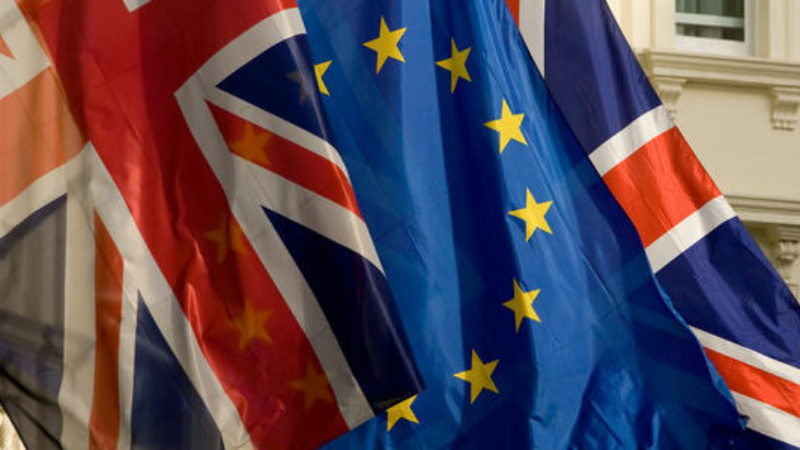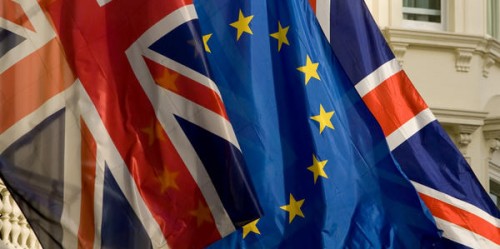

It’s difficult for progressives not to despair at the current state of the world. A hard Brexit is in the offing. Trump is now firmly ensconced in the White House and wreaking global havoc. And far right politics continue to proliferate on the continent.
That all being said, rather strangely, I do feel a sense of optimism about the progressive cause in 2017.
Yes, this is a change moment of seismic proportions: the established order is being uprooted; the anti-politician flourishes; consensus opinion is sneered at; and facts and truths are being casually dismissed or discarded outright.
But in such a profound period of reckoning, a vision of hope and change can have powerful meaning.
To this end, I had the privilege of convening a major Fabian Society debate involving some of the best thinkers from our movement and beyond, including Leah Kreitzman, Stephen Kinnock, and Daniel Franklin.
The objective was clear: articulate a compelling analysis of the challenges facing progressives, worldwide, and how we must respond.
Here are some of the thoughts to emerge.
Cities offer great hope for progressives in 2017. Labour is in power in the capital. And by the middle of the year, we are likely to hold other major cities across the UK too. Together, they can form a powerful bulwark against the increasing tide of hateful populism. They also have the opportunity to show people what progressive politics can achieve, as Sadiq Khan is demonstrating. But there are dangers too, from this success.
The public may think we are just a party for the big cities; that our political offer is narrowly focused for a metropolitan populace. Worse, they may feel we don’t seek to represent those living outside of cities, or even care about them. There is a real risk, if we are not careful, of the party being seen as champions of ‘city exceptionalism’ – preaching from on high to all others. As one of our speakers said, you cannot overestimate the difference between London and the rest of the country – “it’s almost a different world”.
To prevent this, we must ensure our success at the metro mayoral level translates into a national story of what can be achieved by Labour. That means being rooted in communities right across the country, and in the lived experiences of ordinary people. It also means ensuring Labour values and ideas are not just defined by city inhabitants, but by the interests of the country at large.
Another way of exploring this challenge for the left is to consider the shifting axis of politics. Traditionally, it has been contested along ideological and class lines. But that’s changing fast. People now think more in terms of values, and by cultural and social instincts. At the debate, several queried the perceived dichotomy between globalism and patriotism. But the speakers were absolutely unequivocal: there’s no tension between the two. You can be both. And for Labour to succeed, it must be both.
The answer may lie in a form of ‘progressive patriotism’. This would be resolutely open, liberal and internationalist in its outlook; it would be radical in its ambitions of economic and social equality, and pursuit of them; and it would be about a love of country, and its defining values and institutions – and importantly – unashamedly willing to defend them. As one of our speakers noted, it was a Labour government that took us into NATO.
Key to developing such a prospectus, is to engage with the world as it is. So let’s consider immigration, as an example. Here’s what we know: public confidence in the UK immigration system is utterly shattered; Labour is blamed (whether fairly or not) for many of its problems; and the country voted to leave the EU, in large part, because of freedom of movement.
Taking all that into consideration, how would a progressive patriot potentially respond? They would do so, by arguing for an immigration system that works for everyone, is part of a broader story of our industrial renewal, and through adequate controls, provides people with security. That means prioritising highly skilled workers from across the world, helping to tackle our chronic skills shortages; giving city leaders and the regions a bigger say on immigration policy, so that the benefits are more evenly shared; and showing people the huge premium from migration, with a dividend fund.
The debate highlighted how much progressives must understand and engage with the world as it is. But we must also dream of a better one and fight for that. If we don’t, as one of our speakers warned, the corrosive sense of fatalism engulfing the country, will only intensify, and to our detriment. We know too many people feel the system is rigged against them. Playing the anti-elitism card will only go so far. You need to offer people a radical alternative that is believable; they must look on Labour as agents for change and hope.
That means developing a radical new economic model. As another one of our speakers argued, we fundamentally have the wrong type of growth in the UK. It is imbalanced between London and the country; imbalanced between services and manufacturing; imbalanced between consumption and production; and imbalanced between short term benefits and bigger long-term gains.
This new economic model will require a bold industrial strategy, that invests in a modern manufacturing renaissance. Major investment is also needed in skills and vocational training, as well as research and development. Innovation offers huge commercial and economic opportunities, that we must seize.
Rayhan Haque is a policy adviser and member of the Fabian Society International Policy Group, chairing its ‘The World in 2017’ debate.




More from LabourList
Nudification apps facilitate digital sexual assault – and they should be banned
Diane Abbott suspended from Labour after defending racism comments
Labour campaign groups join forces to call for reinstatement of MPs